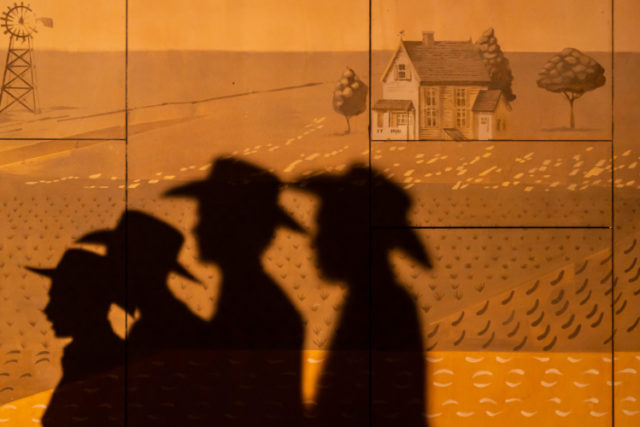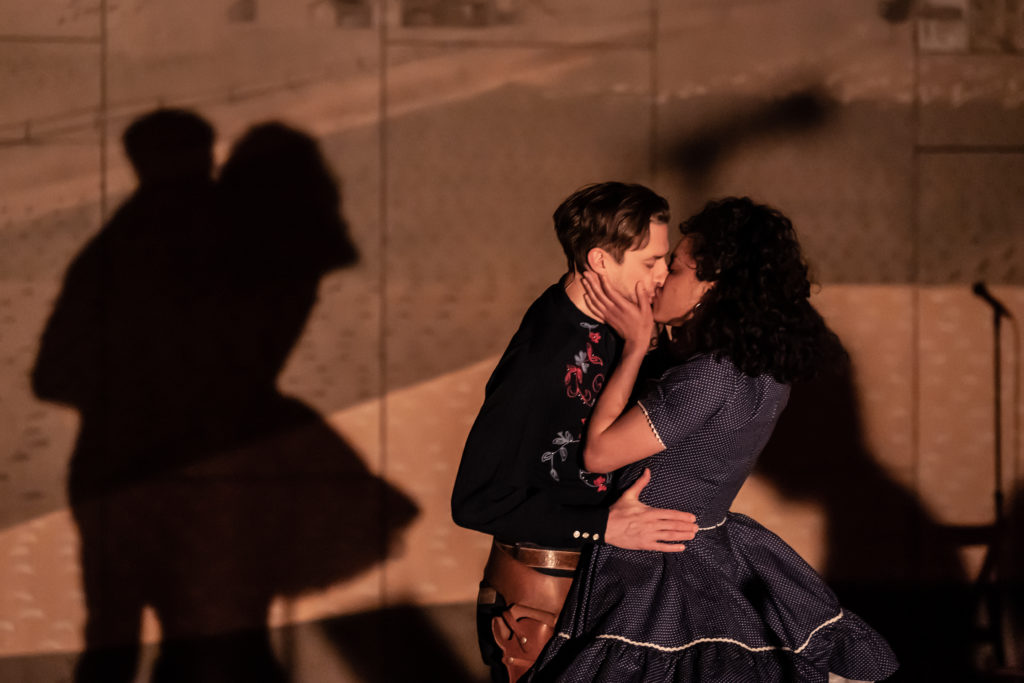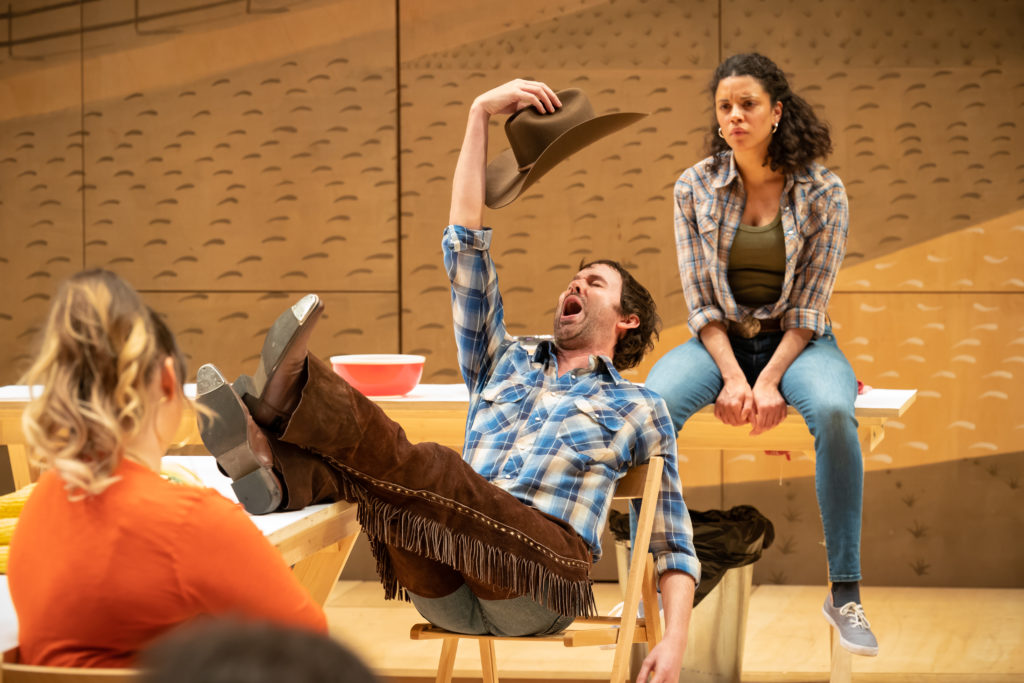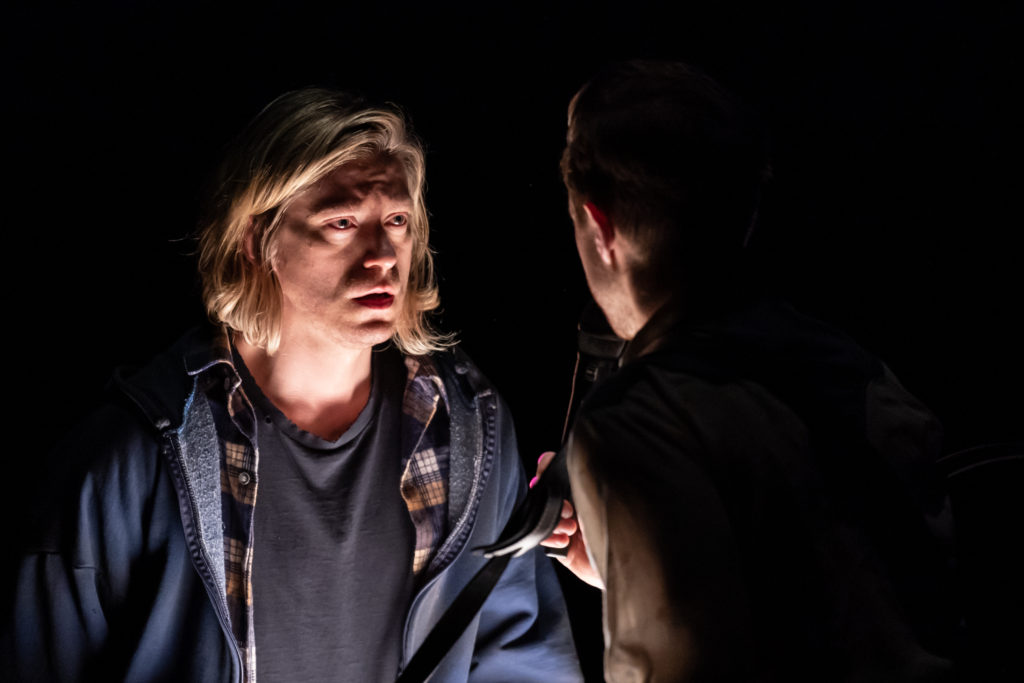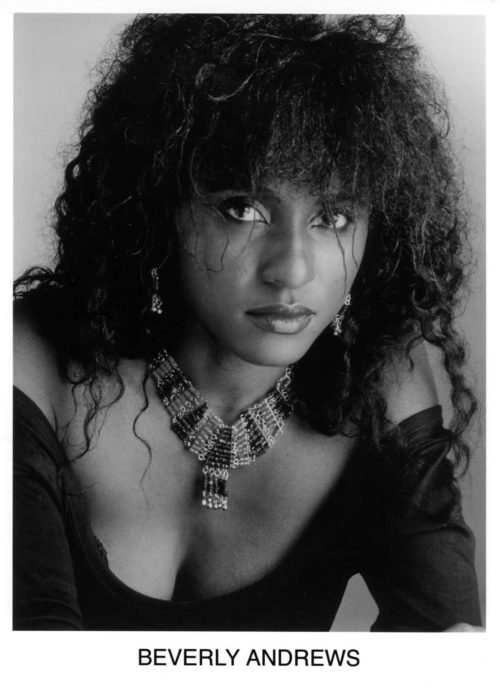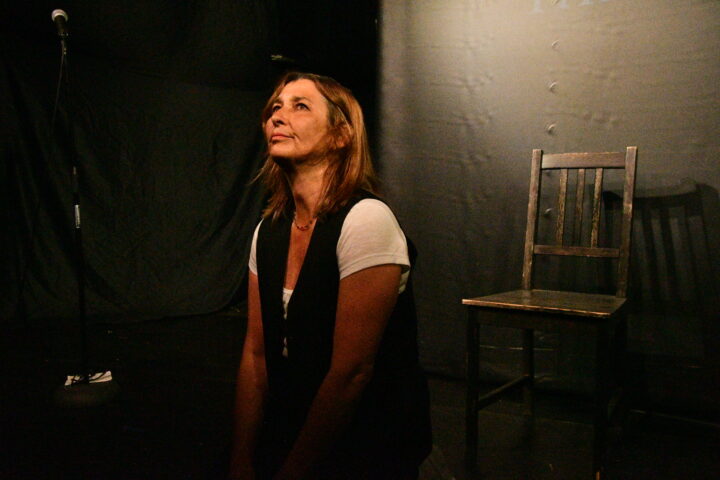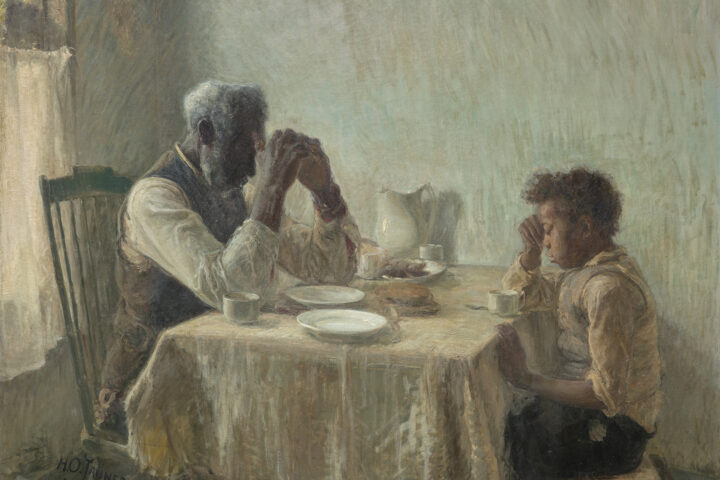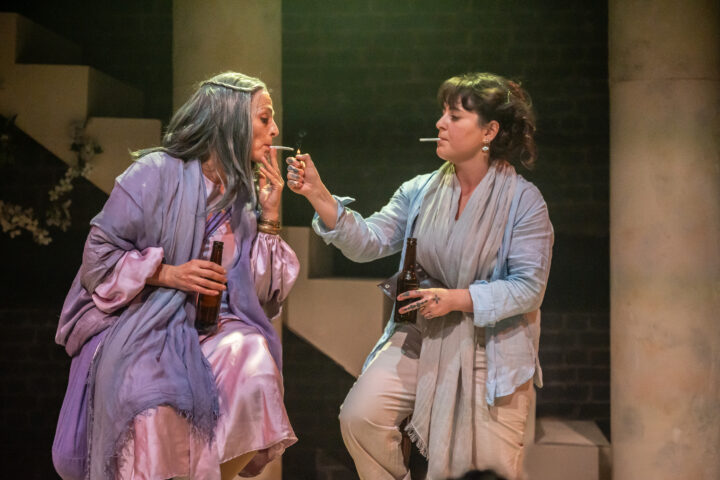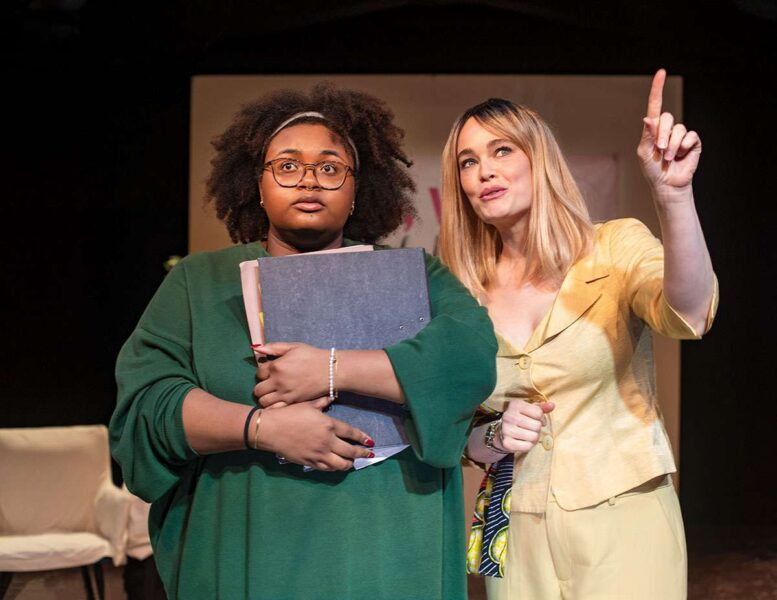Reimagining Oklahoma!: The Young Vic’s Bold Revival Confronts America’s Past
A Classic Reimagined
Richard Rodgers and Oscar Hammerstein’s landmark musical Oklahoma! is now regarded as an American classic. Some even cite it as perhaps the first truly American musical, celebrating the country’s vast landscapes through Agnes de Mille’s innovative choreography and a musical score that reflects an optimistic view of frontier life.
However, the Young Vic’s new London production dismantles much of that idealism, presenting an Oklahoma! that arguably offers a more honest reflection of many of America’s challenges—perhaps more so than its creators ever intended. In doing so, the production delivers something fresh, vital, and powerfully relevant to our times.
Unearthing Hidden Histories
One of the Young Vic’s early decisions in developing this production was to employ blind casting. In doing so, the production immediately invokes a lesser-known history of Oklahoma. After the American Civil War, the state became home to the largest number of African American frontier towns.
Among these towns was Tulsa, which, following World War I, became the center of one of the country’s most prosperous African American communities. The Greenwood District, where many Black-owned businesses thrived, earned the nickname “Black Wall Street.”
This prosperity, however, came to a tragic and abrupt end with the Tulsa Race Massacre, which began on May 31, 1921, and continued through the following day, June 1. The violence was triggered by a rumored assault on a white woman. One version of events suggests that a young Black boy tripped while entering an elevator. To steady himself, he grabbed the arm of the young white elevator operator, who screamed. The boy fled the scene, and those nearby assumed a sexual assault had occurred. This incident lit the fuse for what followed: an orchestrated and brutal attack on Tulsa’s Black community.
White mobs descended upon Greenwood. In a shocking escalation, planes were even hired to drop firebombs on Black-owned homes. To this day, the number of deaths remains unclear, with estimates ranging from 75 to 300. Over 800 people were hospitalized, and around 6,000 African Americans were interned in camps.
Up to 10,000 people were left homeless as schools, churches, banks, stores, and homes were razed. In scenes eerily reminiscent of India’s Partition, mobs also targeted white households suspected of sheltering African Americans. Families who refused to hand over Black servants or guests were attacked as well.
In total, 35 city blocks were destroyed, with property damage estimated at $1.5 million. It would take generations for the community to even begin acknowledging that the massacre had occurred.
Yet, this bold and innovative production offers a subtle but powerful nod to Oklahoma’s buried past—hinting at the histories often omitted from the dominant narrative.
From Romance to Restriction
The musical is based on Lynn Riggs’s play Green Grow the Lilacs and marked the first collaboration between Rodgers and Hammerstein—a partnership that would go on to achieve staggering success. The story follows farm girl Laurey Williams and her courtship by two rival suitors: the charming cowboy Curly McLain and his dark, possibly sinister counterpart, Jud Fry. A secondary romantic subplot features cowboy Will Parker and his flirtatious, free-spirited fiancée, Ado Annie.
Upon its debut, Oklahoma! was an instant success, and it has continued to be performed around the world ever since.
In the Young Vic’s version, both Laurey and Ado are portrayed by minority actresses, and their characterizations differ radically from those in the original production. Laurey’s attraction to Curly appears less rooted in love and more in the limited choices available to her—a reflection of the constrained agency often afforded to women, especially women of color. Ado, by contrast, seems to be straining against the moral restrictions that society has imposed upon her.
These constraints—once seen as relics of a more conservative past—feel strikingly relevant today, especially in light of America’s ongoing political shift to the right. One Republican candidate has even proposed banning all contraception, claiming that “sex should have consequences.” In this context, the moral limitations depicted in Oklahoma! may feel more present and urgent now than they did at the time of the musical’s original production.
A New Perspective on Jud
The character of Jud, Laurey’s other suitor, is traditionally portrayed as a dark and menacing outsider. In this production, however, he is depicted in a far more sympathetic light—as a drifting, marginalized figure whose transient lifestyle mirrors that of many modern Americans surviving on minimum wage. For Jud, Laurey represents not just desire, but perhaps his last hope for stability and connection in an otherwise precarious existence.
Standout Performances
All the performances in this production are outstanding, with Anoushka Lucas as Laurey and Arthur Darvill delivering particularly memorable turns. Marisha Wallace brings infectious energy and cheeky charm to the role of Ado Annie, making her a delight to watch. You can’t help but wish her fiancé, Will Parker—played with understated humor by James Davis—the best of luck in his attempts to keep up with her spirited independence.
A Haunting New Finale
Directors Daniel Fish and Jordan Fein’s production of Oklahoma! is a refreshing reinterpretation—beautifully acted, staged, and lit. What’s truly remarkable is how the directors have taken a traditionally feel-good musical and exposed its darker undercurrents. In a haunting, blood-stained finale, with a few Black cowboys lingering in the shadows, the production invites us to see the ghosts of Tulsa. Look closely, and you realize—they never really left.
Confronting the Myth of America
This Oklahoma! is not just a revival—it’s a reclamation. By peeling back the musical’s glossy surface, the Young Vic’s production reveals the tensions, exclusions, and histories often left unspoken in classic American theatre. It asks its audience not only to reconsider a beloved work but to reckon with the legacy of the country it portrays. Bold, unsettling, and deeply resonant, this is Oklahoma! for our time.
- Black Queer Voices
- The Age of Rage
- The Populist Tango
- Sarah Téibo, the London philanthropist jazz singer
- Sundance 2021
